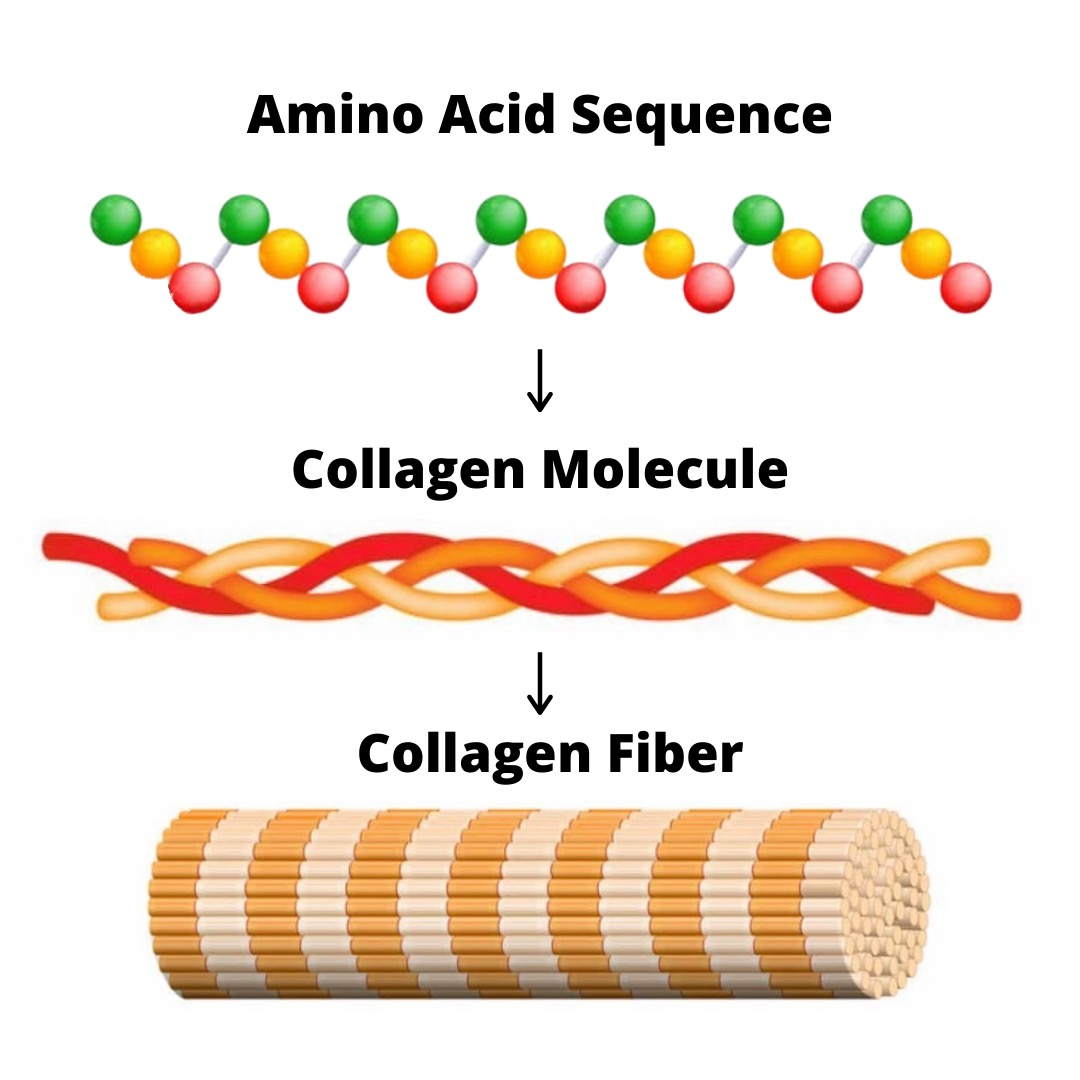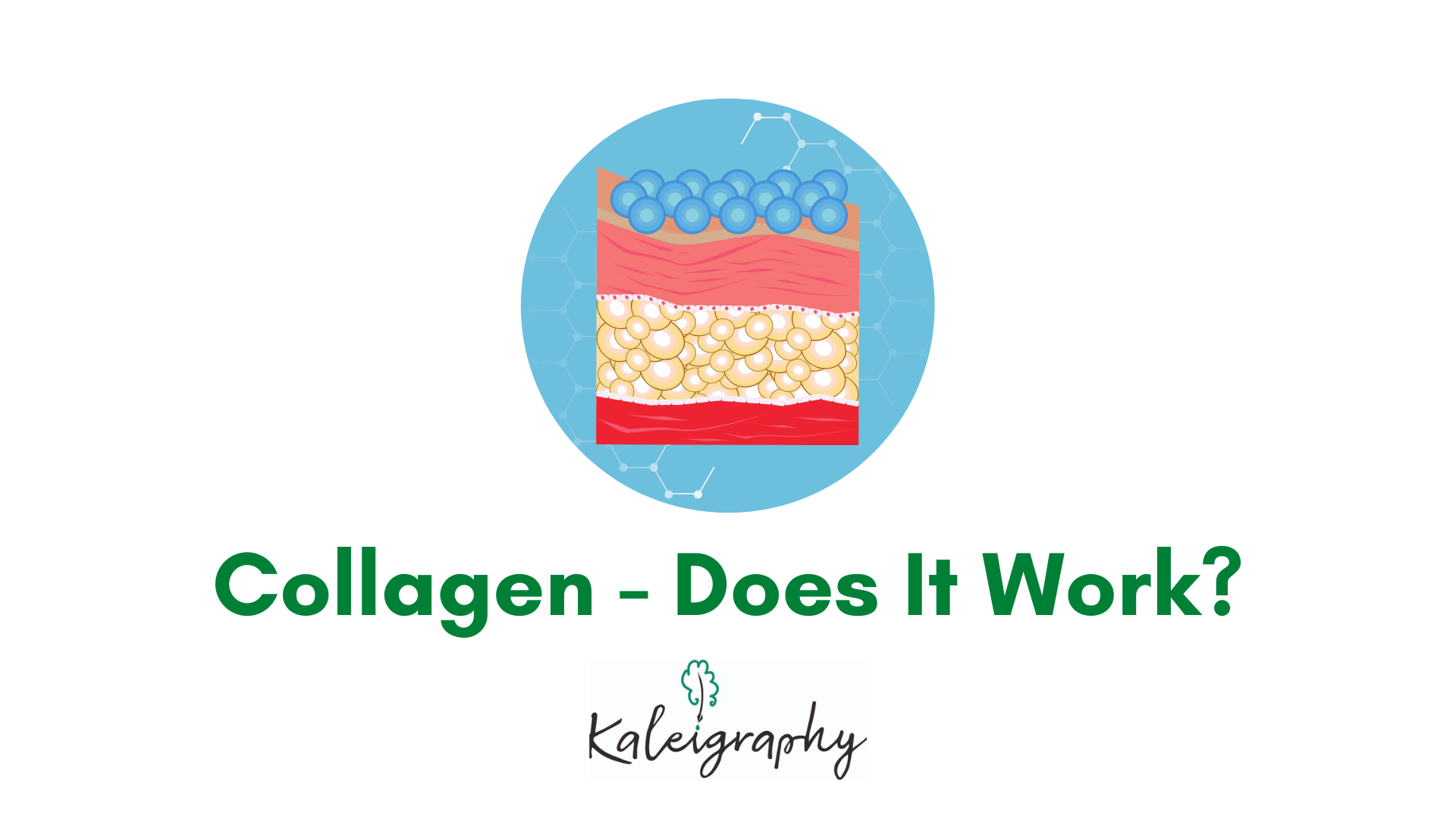I know that you guys have been enjoying the recent deluge of skin health content on my website, all of which is made possible by my very talented writing intern Kat who is back once again with an epic article on collagen.
I will let her take it from here!
Do Collagen Supplements Actually Work?
By Kat Durston
Within just the past five years, the purchase and use of collagen supplements has gone viral among the wellness, skin health, and beauty industries.
Whether it’s being blended into coffee creamers, tossed into food products, or taken orally through capsules, it’s likely you’ve witnessed the current craze over collagen.
In fact, collagen dominates as one of the world’s top-selling supplements, expected to hit $6.5 billion dollars by 2026, with a plethora of product options out there for consumers to choose from.
But can it actually help your skin?
And….
Is it REALLY worth the money?
Let’s find out.
In today’s article I will define what collagen is, discuss the latest research and help you understand what physiological changes in your skin you can expect from taking it.
I will also dive into the different types of collagen on the market and what dosage size and duration is needed to obtain optimal results.
Let’s get to the details.
What Is Collagen?
Collagen is the most abundant structural protein in mammals, constituting for 75-80% of human skin.

When collagen peptides are taken orally, the peptides and amino acids absorb into the bloodstream, and then travel to the dermis (inner layer of skin), where they aid in the formation of new collagen and elastin fibers.
So what does this mean to you?
Well, this is important for skin integrity because the mechanical properties of our skin, such as elasticity, resilience, and vulnerability, are directly related to the collagen-elastin network within the dermis.
While that all sounds great in theory, let’s now take a look at what physical distinctions were actually seen when participants in recent studies (2018 or later) supplemented with collagen.
Improvement In Skin Elasticity
The collagen fibers within our dermis are involved with skin elasticity, or the ability for our skin to stretch and “snap back” into place.
A loss of skin elasticity correlates with disheartening premature aging signs, including wrinkles, dryness, susceptibility to irritation, and texture.
For more information on skin aging, check out the latest article I wrote here.
Multiple controlled trials conducted in 2019 and 2020 concluded that supplementation with hydrolyzed collagen significantly improved skin elasticity in samples of women after four and 12 weeks.
Additionally, a study published in the 2018 journal Nutrition Research observed a 40% improvement in skin elasticity with 30, 60 and 90 days of collagen supplementation, notably suggesting that longer durations of use could exponentially improve elasticity parameters.
Increased Skin Hydration
Adequate skin hydration can also reverse signs of aging and prevent wrinkles, as well as aiding your skin in looking more plump, smooth, and rejuvenated.
Collagen supplementation has been shown to impact skin hydration through a reduction in trans-epidermal water loss (water lost through your skin).
A recent study completed in 2018 found that 12 weeks of collagen peptide supplementation resulted in a significant increase in skin hydration compared to the placebo group.
Further, in this 2018 study, 98% of participants who took a collagen supplement for 90 days reported a substantial increase in skin hydration on a self-reported questionnaire.
There are other dietary strategies that can be utilized to enhance skin hydration and you can read Andy’s feature article for Healthing.ca to find out what they are.
Reduction In Wrinkles
Both a lack of skin hydration and a decrease in skin elasticity contribute to the formation of fine lines and wrinkles, which we all know is a popular enemy in the realm of skin health.
The oral supplementation of collagen can be more effective at reducing the appearance of wrinkles and improving skin texture than your usual topical remedies, predominantly due to that circulation of collagen within the bloodstream.
A randomized controlled trial published in the 2020 Journal of Cosmetic Dermatology saw a 35% reduction in wrinkles when supplementing with hydrolyzed collagen for 12 weeks.
In addition, multiple other studies (1,2) on collagen supplementation concluded a decrease in skin wrinkles, including a significant difference (10.5-fold) in the visual appearance of skin compared to the group who did not supplement with collagen.
Which One To Take & How Much?
So now that you have an idea of what collagen is and what it can do for your skin, let’s break down the details of how to appropriately supplement with collagen.
The most popular and well-researched collagen is derived from bovine, which is mainly sourced from cows.
A few of the best-selling bovine supplements on Amazon include: Vital Proteins, Sports Research and Orgain.
In more recent years, fish-derived collagen has increased in popularity, we can assume mostly due to ethical and/or moral reasons.
While marine collagen is less researched, studies are emerging that show an improvement in skin health with daily supplementation (1,2), and I believe even more data will transpire in the next coming years.
Another trend on the market is “vegan collagen” or “plant-based collagen”, which is routinely sourced from genetically modified yeast and bacteria, and is considerably less researched than marine or bovine collagen.
Since there is not much evidence on the efficacy of vegan collagen supplements, if you are plant-based and looking for “collagen-like” benefits, you can save your money and try consuming foods with a similar amino acid content to collagen instead.
These include: soy products, black beans, & some legumes, nuts, and seeds.
Lastly, as far as dosage and duration are concerned, most of the studies saw an improvement between 30 and 90 days, with 12 weeks being a common marker.
In March of this year the International Journal Of Dermatology published a systematic review and meta-analysis that captures the essence of this article and concluded that the best available evidence suggests a positive influence of 90-days of collagen supplementation on skin hydration, elasticity, and wrinkles.
Since collagen comes in powder and capsule forms, the dosage will vary, but it appears on average a dose of 4-10 grams daily is recommended to achieve the maximum benefits.
Final Thoughts
Collagen interventions have continuously improved skin characteristics with minimal inconsistencies, across a varying body of research.
With minimal risk or adverse side effects, adding a collagen supplement into your daily routine could be an effective strategy to improve skin health, structure, and function.
Kat Durston
PS: Andy wrote an article back on collagen in 2019, and while we collectively agreed a more timely look at the research was necessary, you can check out his article as well if you’re keen for more collagen content. We also wrote a joint piece on nutrition and eczema which is absolutely worth checking out if relevant to you.
Want To Utilize The Power Of Nutrition To Improve Skin Health?
Work With Andy!
Acne, Eczema (dermatitis) and Rosacea – along with skin aging, are among the most common skin concerns in North America.
Each of them has a strong dietary component, which means that you can utilize the power of nutrition in some capacity to fight back.
Andy has helped hundreds of people optimize their nutrition for various skin related concerns, so don’t hesitate to reach out about working together.



